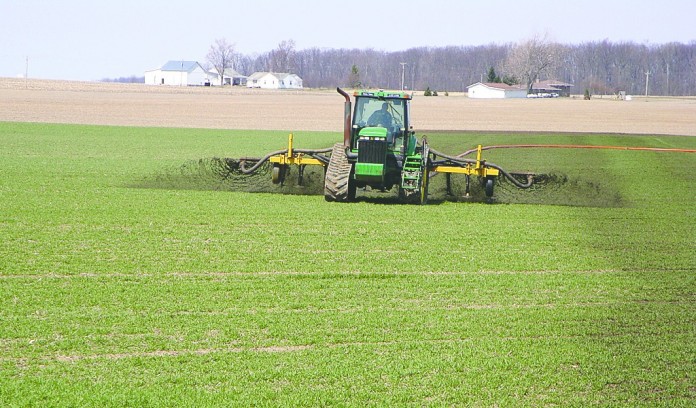
COLUMBUS — Farmers in the Western Lake Erie Basin will soon have significant new resources to further their efforts to protect water quality. Ohio farm organizations and their partners, taking a proactive step, will work with farmers to expand the number of individuals who have nutrient management plans.
In addition, the project will increase the use of soil testing to achieve improved nutrient management. New research conducted by government, academia and the private sector indicates that nutrient runoff can be meaningfully reduced when farmers have accurate data on crop nutrient needs and then follow a detailed plan that simultaneously maximizes efficient production and minimizes nutrient loss.
A series of workshops will provide farmers with individualized nutrient management plans. Ahead of the workshops, farmers will be advised on obtaining soil tests from which the nutrient management plan will be written.
Working together
The plans will be completed using a program developed by the Ohio Department of Agriculture. The partnering groups are Ohio AgriBusiness Association, Ohio Cattlemen’s Association, Ohio’s Certified Crop Advisors, Ohio Corn & Wheat Growers Association, Ohio Dairy Producers Association, Ohio Farm Bureau Federation, Ohio Federation of Soil and Water Conservation Districts, Ohio Pork Council, Ohio Poultry Association, Ohio Sheep Improvement Association, Ohio Soybean Association and Ohio State University Extension.
This project is an outcome of farmers and their organizations investing millions of dollars in research that identifies farming practices that can contribute to improved water quality. This is one of many payoffs from that research.
Experts concur that no single change to farming practices can eliminate nutrient runoff, nor are there any quick fixes. It is anticipated the workshops will begin this summer. Details will soon be finalized on all funding sources and the process to measure results.
Related coverage:
Ohio farmers given new nutrient management tools (May 21, 2017).









